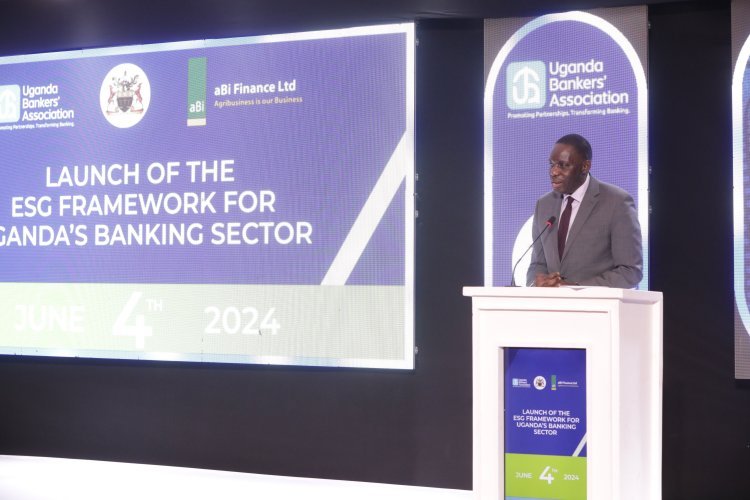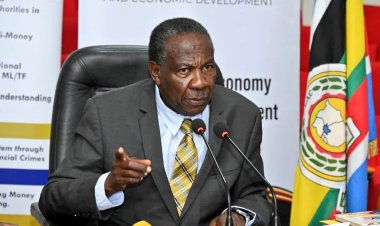BoU Unveils ESG Framework for Banking Sector

Martin Atingi-Ego, Deputy Governor for the Bank of Uganda, launched the Environmental, Social, and Governance (ESG) Framework for the Uganda's banking and financial sector.
This initiative is aimed at aligning the industry with global sustainability standards.

Atingi-Ego emphasized the growing importance of ESG considerations, highlighting how they meet evolving market expectations, regulatory scrutiny, and global needs.
“The ESG Framework for the banking industry is a set of guidelines and principles that will support the Uganda Bankers’ Association (UBA) member financial institutions in achieving their sustainability goals, assisting their clients in transitioning towards low-carbon and resource-efficient economies while also supporting financial inclusivity and social welfare,” he stated.
The ESG Framework serves as a comprehensive set of guidelines designed to help Uganda Bankers’ Association (UBA) member financial institutions achieve sustainability goals.
It also aims to assist clients in transitioning to low-carbon and resource-efficient economies while promoting financial inclusivity and social welfare.
“ESG is crucial for managing associated risks and impacts, aligning with global trends and local market needs,” Atingi Ego emphasized.
“The framework will guide our financial institutions in adopting sustainability practices, thereby supporting Uganda's broader sustainable development goals.”
The ESG Framework outlines a systematic approach for managing environmental, social, and governance-related opportunities and risks.
It adheres to global standards such as the Global Reporting Initiative (GRI), Sustainability Accounting Standards Board (SASB), and International Sustainability Standards Board (ISSB), among others.
Wilbrod Owor, Executive Director of the Uganda Bankers Association, detailed the framework’s key pillars, including ESG Governance, Sustainable Finance, ESG Risk Management, and ESG Reporting and Disclosures.
“ESG Governance involves understanding capabilities and opportunities at all levels, from the Board to individual officers. Sustainable Finance provides guidelines for green, social, and sustainable bonds, focusing on project evaluation, proceeds management, and reporting,” Owor explained.
The ESG Risk Management pillar focuses on identifying and managing ESG and climate-related risks and their impacts over different timeframes.
ESG Reporting and Disclosures provide guidance on transparent reporting of ESG metrics, ensuring accountability and informed decision-making.
The implementation of the ESG Framework will span 36 months, divided into two phases. The first phase involves communicating and engaging bank staff to enhance their understanding of ESG principles.This phase will be supported by the Uganda Institute of Banking and Financial Services.
“An industry communication plan has been developed to foster internal support among staff and external communication with bank customers,” Owor added.
Phase two will focus on broader external engagement and support.

































